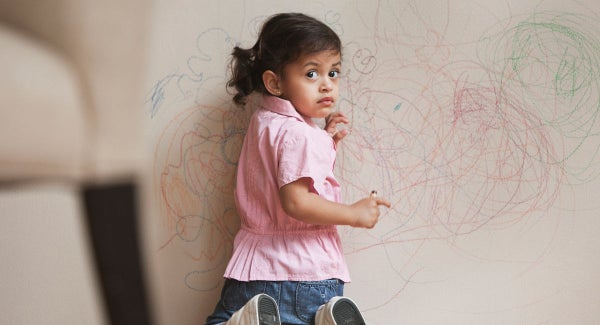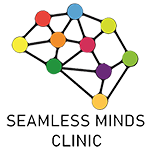
Psychotherapy/Counselling
Psychotherapy, or talk therapy, is a tool for helping people with a wide variety of mental illnesses and emotional problems. Psychotherapy can help to eliminate or control disturbing symptoms so that a person can function better and enhance well-being and cure.
Therapy can be done in an person , family, couple or group environment, and can benefit both adults and children alike. Sessions usually take place for about 30 to 50, once a week. In psychotherapy, both the patient and the therapist must be actively involved.
Psychotherapy is also used to treat mental health problems in conjunction with the medication. Medication may be clearly useful in some circumstances and psychotherapy may be the best option in others. The combination of medicine and psychotherapy care is safer for many people than either alone.
Cognitive Behaviour Therapy– a common form of talk therapy (Psychotherapy). CBT helps people become more mindful of faulty or negative thoughts to look more objectively at difficult circumstances and to respond more effectively to them. for Generalised Anxiety Disorder, Panic Disorder, Social Anxiety, Performance Anxiety like stage fright, speaking in front of people, giving presentations, Phobia like fear of crowded places, fear of going in a flight, , Depression, Obsessive Compulsive disorder (OCD), Eating Disorders, Anger issues, Stress management, Stammering, stuttering.
Behaviour Therapy– a paragliding term for therapy types to treat mental health disorders. This method of therapy aims to recognise and help alter habits which are potentially self-destructive or unhealthy. It operates on the concept of understanding all habits, and modifying negative behaviours. Treatment also focuses on social issues, and how to address them.for behavioural disorders in children and adolescents, temper tantrums, Tic disorders, Screen Addiction.
Dialectical Behaviour Therapy (DBT)– a cognitive-behavioural form of therapy. Its key aims are to teach people how to live in the moment, learn healthier ways to deal with stress, control their emotions and strengthen relationships with others. DBT is useful for self harm behaviours, borderline personality who have difficulty in regulating emotions. DBT can benefit people with mental control problems or self-destructive habits (eating disorders and drug use disorders).2 DBT can be used to treat post-traumatic stress disorder (PTSD).
Sex Therapy for psycho sexual disorders in men and women. Sex therapy is a specialised kind of psychotherapy — a general term used by a mental health professional to treat mental health problems. Via sex therapy, questions about sexual activity, sexual emotions, and intimacy may be discussed either in person or couple therapy or in family therapy. Sex therapy can be effective for people of whatever age, gender or sexual orientation.
Motivational Enhancement Therapy- a therapy approach that helps people overcome their ambivalence about medication and avoidance of their use of drugs. This approach aims at evoking rapid and internally driven progress, rather than guiding the patient through the recovery process step by step. This therapy consists of an initial battery assessment session, followed by two or four daily recovery sessions with a therapist.
Marital therapy and Counselling– help couples to deal with their challenges, including strangling and loss of romantic feelings, relationship issues, relationships, unfair expectations, and competitive struggles to decide which dream and ambitions will prevail. Couples with the greatest chance of success are those still determined to keep alive their marriage. Intervention that can help partners to safely address their difficulties and offers safety (trustworthy environment),normalisation and reality testing (understand desires and expectations, traffic control (make sure that partners take turns talking and listening to each other), coping skills education, and interpretation (listening skills, promote sharing of feelings and desires that may be difficult to express and encourage partners to repeat what their partners have said).
Trauma focused therapy– Trauma-focused cognitive behavioural therapy ( TF-CBT) is a type of treatment intended to help people as well as families resolve the detrimental effects of a traumatic experience. Trauma Cantered Therapy is an evidence-based approach that has been proved successful following multiple trauma or a single traumatic experience for treatment.
Solution focused therapy– form of therapy which places far greater emphasis on discussing solutions than problems (Berg, n.d.). Solution-focused counselling does not linger on every aspect of the problem you are having. The solution-focused paradigm maintains that focusing on problems alone is not an efficient way to solve them. Instead, SFBT targets the existing solution habits of clients, assesses them for effectiveness, and modifies or replaces them with problem-solving approaches that work.
Treatment for Children and Adolescents with Counselling and Psychotherapy for

School Refusal– School denial describes a child’s disorder that refuses to go to school on a consistent basis or that has problems staying at school. Children with school refusal may complain about physical symptoms shortly before it’s time to go to school or repeatedly ask the school nurse for a visit. The symptoms suddenly fade if the child is permitted to remain home, only to reappear the next morning.
Poor Social Skills– Symptoms found in children with poor social competencies may involve vision problems. They do not understand body language or facial expressions and have little interest in social interactions. These kids are too serious and don’t understand sarcasm, or know how to greet people properly. Weak social skills are commonly found in children diagnosed with Attention-Deficit Hyperactivity Disorder (ADHD), Autism Spectrum Disorder (ASD) or Aspergers syndrome , Environmental factors, past failures, anxiety or depression can also play a role for some children.

Behavioural Problems– A child under the age of 5 will rarely receive a diagnosis of a serious conduct disorder. They may however begin to show signs of a condition which may be diagnosed later in childhood. These will be manifested as disturbance in emotions – eg, anxiety or depression, behaviour- eg, aggression, physical function – eg, psychogenic disorders or mental performance – eg, problems at school. These may include attention deficit hyperactivity disorder (ADHD), oppositional defiant disorder (ODD), autism spectrum disorder (ASD), anxiety disorder, depression, bipolar disorder, learning disorders, and conduct disorders.
Poor Anger Control- Rage can be toxic and people who sometimes feel it do not know how big an issue it is. That’s because anger can be effective on the short term.

Digital addiction– If your child spends too much time on the Internet, they may develop compulsive behavior. This can lead to an internet addiction, which can destroy a healthy balance of interests and activities in your teen’s life just like any other type of addiction.
There are three parameters for gauging the severity:
- Impaired control over gaming in terms of frequency, intensity and duration.
- Increased priority given to gaming.
Continuation or escalation of gaming despite negative consequences
Some of the more common psychological treatments of Internet Addiction Disorder include individual, group, or family therapy with behaviour modification. Often, Cognitive Behavioral Therapy (CBT) or Art Therapy are commonly used.
